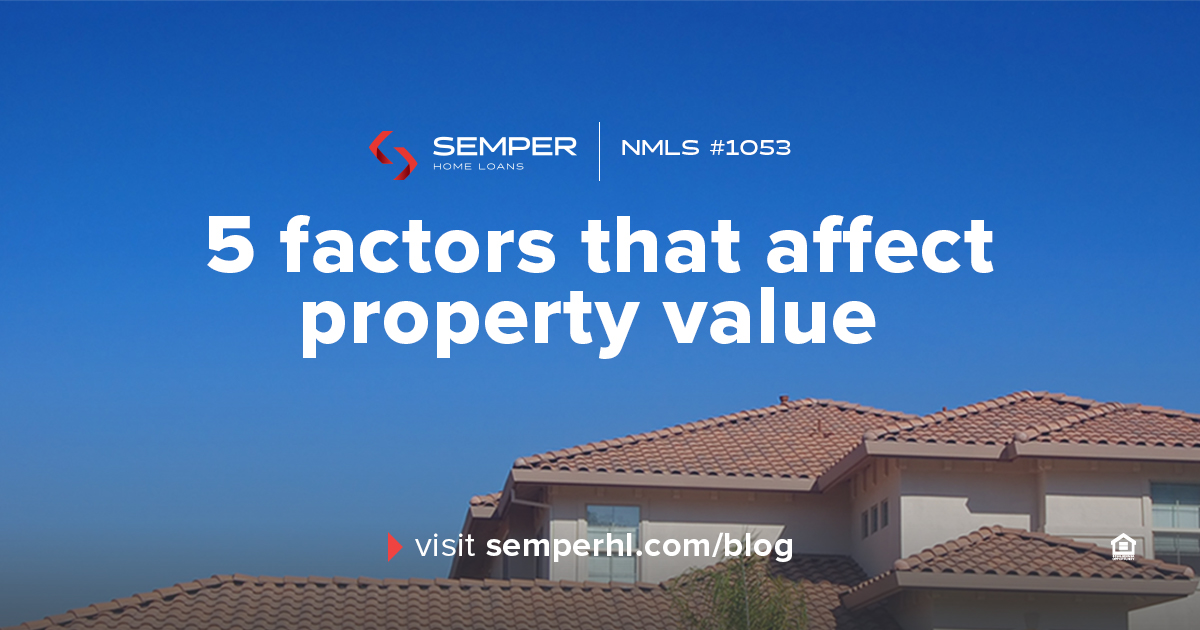5 Factors that Affect Property Value
June 22, 2020

Most curious homeowners have consulted Zillow at some point or another to estimate their current property value. While those estimates may not always be very accurate, it does beg the question-what affects a home’s property value and how is that determined?
Location
A key factor in determining a home’s property value is location. Easy access to amenities, school system ratings, proximity to metropolitan destinations, and crime rates will impact real estate value. Other more obvious elements, such as highly desirable water-front property will be more expensive.
Nearby real estate comps
A good indicator of a property’s value is what similar homes in the area sold for recently. These homes are comparable to the property in question, and will have similar features such as square footage, number of bedrooms, updates and condition of the home, and lot size.
Homes that have sold the most recently in the area will provide the most accurate market data to determine value. Older sales won’t offer the most relevant information, as the market is always fluctuating.
Age and condition
New homes typically fetch a higher price. Modern buyers are exceptionally hesitant to take on a home that requires significant repairs such as a new roof, replacing a failing septic system and other large, potentially costly renovations. And most are willing to pay more to avoid these expensive projects.
Upgrades and updates
Upgrades and updates can have a significant impact on home value. Renovated or updated kitchens and bathrooms often provide the biggest increase. Especially in older homes, updated electrical and heating systems that are more efficient and up to code will have a positive affect on value. Outdoor spaces and curb appeal will come into play as well. Using a home improvement value calculator can help provide insight on what projects aren’t worth the investment, and others that should be done before listing.
Home size
Size of a home is a major factor when determining a home’s value. Typically, larger homes have a higher market value, but the useable space of the home is very important to buyers. Unfinished basements or attics, although positive in terms of potential renovation opportunity, don’t provide additional square footage of livable space to a home. Houses with more bedrooms and bathrooms will usually get a higher price.
These factors are good to keep in mind when working with your realtor to list your home. Overpriced homes tend to sit on the market, and a high number of days on the market hurts your chances of selling. Knowing in advance what investments will have the highest ROI when listing your home can help you make informed decisions on the projects and updates you choose.
Categories: helpful tips